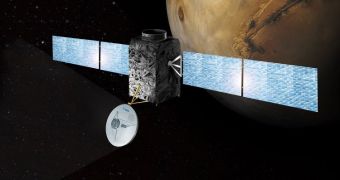US President Barack Obama recently released the White House's budget proposal for FY2013, a document that includes $17.7 billion for NASA. The American Astronomical Society (AAS) is now responding to this proposal, asking the President and Congress for a more balanced approach.
The American space agency has always been divided between planetary sciences and space exploration, and the new budget would accentuate this conflict even further. The budget is about $59 million less than what NASA got for fiscal year 2012.
Since February 13, when the White House first unveiled its budget proposal, experts have been trying to figure out how the new numbers will impact current missions. The American Astronomical Society (AAS) believes that a better balance can be achieved.
Made up of around 7,500 astronomers, physicists, mathematicians, geologists and engineers, the AAS is a very powerful scientific organization, which reflects the views of an important portion of the entire scientific community, Space reports.
One of the main critiques the AAS statement brings to the 2013 budget is that it does not include a greater variety of missions. Experts say that the White House and Congress need to focus on proposing small, medium and large space missions alike.
Furthermore, these projects need to cover a larger numbers of the fields NASA is engaged in, including solar physics, planetary science, astronomy and astrophysics. The agency has already announced severe cutbacks for science and planetary exploration mission, in response to the new budget.
Instead, NASA announced that it would shift its focus towards human exploration and technology, even though the first of the new Orion capsules will not fly for at least two years, and the Space Launch System (SLS) heavy-lift delivery system is not scheduled to fly until at least 2017-2018.
“The American Astronomical Society, noting the budgetary challenges that the nation faces, appreciates the President's commitment to science, technology, engineering, and mathematics (STEM) research in the FY 2013 budget,” a February 23 AAS statement reads.
“Astronomical research, including the study of the Sun, the solar system, and the rest of the Universe, is a vital part of the research activity of the United States and an area in which the U.S. has been preeminent for many decades,” the document adds.
The AAS also cautions against withdrawing from international projects such as ExoMars, due to the fact that the “significant scientific challenges of the future demand reliable cooperation internationally.” The US should strive to improve its existing partnerships, not destroy them.

 14 DAY TRIAL //
14 DAY TRIAL //